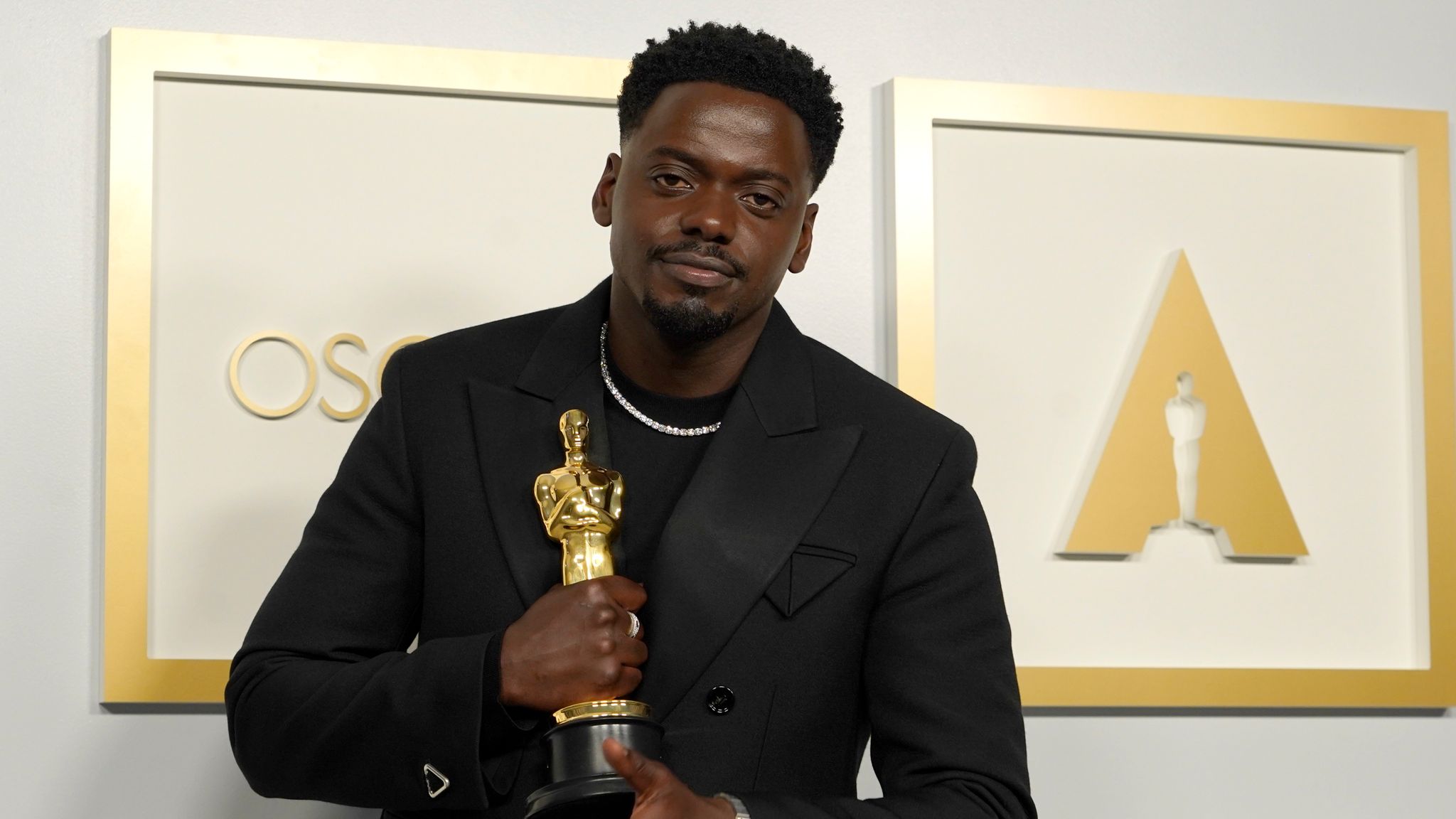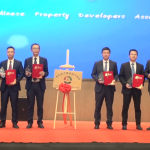The film premieres globally on Netflix on January 19.
Born to Ugandan parents, Oscar-winning actor Daniel Kaluuya has stepped behind the camera for the first time to direct The Kitchen, a drama set amid the stark social divisions of an alternative London.
The film opens with a Robin Hood-like scenario, as a gang of young people hijack an armoured truck for its rations to redistribute to their community in an area dubbed ‘the Kitchen’.
Kaluuya and Kibwe Tavares’ joint directorial debut depicts a bleak and desperate London where social housing no longer exists.
Starring Top Boy‘s Kane “Kano” Robinson and 14-year-old newcomer Jedaiah Bannerman, it speaks to the heart of a changing landscape and how, although oppressed, people can still experience joy and togetherness.
Kaluuya is known for acting in films like Get Out, Black Panther and Judas & The Black Messiah. Ten years ago, he was inspired by hearing the story of a real-life heist whilst sitting in a barbershop – and that would become the basis for two of his new movie’s key scenes.
Kaluuya, Tavares and producer Daniel Emmerson spent years bringing together the idea, receiving funding from Sundance Labs and eventually creating their fast-paced sci-fi feature.
“There’s been a lot of growth. Going from wanting it to be great, to wanting it to be honest, has been the biggest transition for me,” says Kaluuya.
The Kitchen depicts a gritty London, heightened by Tavares’ architectural background and some amazing visual effects. Barbican Conservatory and the former London Electricity Board Building add to the brutalist nature of its landscape.
“You tend to build things that are new as an architect,” Tavares says. “Even though we’re trying to show an alternative reality, really it’s just a version of London that celebrates what’s already there as opposed to something overly depressing or bad.”
Robinson’s character Izi is often seen looking out to the London skyline from his run-down apartment wondering how close he is to being able to start somewhere new.
Housing charity Shelter reports that since 1991 there has been an annual net loss of over 20,000 social houses and that not enough homes are being built to cover the loss.
Kaluuya’s film reflects this in the depiction of The Kitchen, an imposing collection of high-rises that look like every post-apocalyptic film survivor camp. It sits in direct contrast with the shiny gloss of its surrounding new-builds, a threat to those who simply can’t afford to move.
Housing is an important issue to Kaluuya. “What we want or need is not what we’re in. And also, the movement [of people] is fuelled by the social climate,” he says.
“And it doesn’t make sense sometimes to stay in the area that you’re in because of a bedroom tax. My friend’s gone to uni and now her mum can’t really afford the extra bedroom tax. Stuff like that accelerates that breakdown of a community, in my opinion.”
Kaluuya was also keen to show moments of joy, like with scenes set in a roller disco. “There’s was a care for enjoyment in the past and I wanted to reflect that,” he says.
“I just love that [song and dance] sequence in Singing In The Rain and I love Ferris Bueller’s Day Off. I wanted that for us and I’ve been to so many raves that were just incredible amazing moments in my life.”
At one point in the film, Bannerman’s character Benji walks through the Kitchen’s streets for the first time. The hustle and bustle is evident, and although the threat of eviction looms, people are still getting haircuts and shopping for fresh fruit, community has prevailed.
The young actor says he started forming a friendship with Robinson long before they started filming. “I got along with everyone I worked with. The community on set felt similar to the community I have in real life but on a smaller scale,” he says.
“I found it really hard to film the emotional scenes, but I also really liked exploring that side of Benji. Benji and me are similar because we’re always asking questions, but he’s braver than me as I’m quite shy off-set.”
The sense of community that was fostered between Robinson and Bannerman on set has found its way into the folds of the film.
Robinson delivers a performance full of depth. In his first scene, the self-obsessed Izi is using up the limited supply of hot water, much to the chagrin of his fellow residents.
Former footballer Ian Wright plays Lord Kitchener, a pirate radio MC and “real voice of the community”, who wakes the Kitchen’s residents up each morning with old-school anthems and motivations to look after one another.
Wright’s character represents “possibility” in his defiance, and speaks to what Robinson believes the film really wants to share.
“This is what it could be if we just said, no, we could potentially get to a better place. It might get worse for a little bit, but there’s a possibility of the other side of it,” he says.
Emmerson reflects on how the Kitchen depicts the community as being a “much bigger family”.
There’s also Staples, played by Hope Ikpoku Jnr, and his gang of ‘lost children’, who zoom around on motorcycles and BMX bikes, antagonising housing enforcement officers and redistributing wealth.
And there’s a thriving skate community, who are having the time of their lives, forgetting the worries above them as a DJ spins classics.
“There’s been a raid the day before and they respond with a party and enjoyment. The riders are an organisation called Bikestormz and the skaters we found through social media,” Emmerson tells the BBC about enlisting locals.
Ultimately, The Kitchen is about “cycles” and coming back to the community, Kaluuya says.
“People keep turning, they keep travelling and moving around. They’re all using their wheels for different reasons, not just for crime, for work or for joy.”





